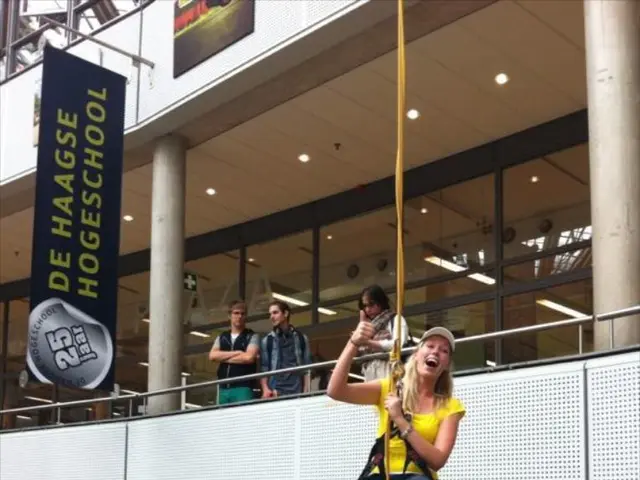Tourist inquiry activity on Trivago decreases for U.S. vacation packages
reshaped text:
International travelers are shunning the United States in growing numbers, according to recent data from Trivago, a leading accommodation platform. The drop in bookings, particularly from Canada, Japan, Mexico, and Germany, has been attributed to President Donald Trump's policies, though the picture is complex.
Trivago's CEO, Johannes Thomas, revealed that bookings from these countries have plummeted by double-digit percentages. People in Canada have been vocal about their disapproval of Trump's plans to annex them into a 51st state, but the so-called "Travel and Tourism Trump Slump" is more than just a statement of displeasure. Issues at the US border, where travelers have faced aggressive refusals despite having the necessary documents, and a suite of travel advisories issued by Europe and China warning of US immigration control, have likely deterred tourists.
The worldwide economic shocks caused by Trump's foreign policy are also affecting travel decisions. Many holidaymakers are rethinking their plans due to waning confidence in the economy. This has significant implications for the domestic travel market, with Americans cutting their travel budgets and opting for lower-cost, lower-rated accommodation, according to Trivago.
The European Union's largest economy, Germany, traditionally a large contributor to US tourism, is among those reconsidering their travel plans, given the threat of 50% tariffs on EU goods. While Trump has temporarily paused these levies after high-level talks between French President Emmanuel Macron and European Commission president Ursula von der Leyen, the uncertainty remains.
The decline in international visits to the US mirrors data from the US National Travel and Tourism Office, showing an overall 11.6% drop in foreign arrivals in March 2025 compared to the previous year. It's crucial to note that tourism patterns are influenced by a multitude of factors, not just Trump's policies. The strength of the US dollar and the ongoing COVID-19 impacts are additional complicating factors.
In summary, Trump's policies may be a contributing factor to the decline in international tourism, but the picture is complex, with economic conditions, geopolitical tensions, and global factors all playing a role.
- The drop in travel bookings to the United States, particularly from Canada, Japan, Mexico, and Germany, is linked to President Donald Trump's policies, as suggested by Trivago, a prominent accommodation platform.
- Trivago's CEO, Johannes Thomas, revealed that bookings from these countries have decreased by double-digit percentages.
- Holidaymakers from various nations, such as Canada, have expressed disapproval of Trump's plans to annex them into a 51st state, but the declining trend in tourism is more than just a political statement.
- Issues at the US border, where travelers have encountered aggressive refusals despite having the necessary documents, coupled with travel advisories issued by Europe and China warning of US immigration control, have likely deterred tourists.
- many tourists are rethinking their plans due to waning confidence in the economy, leading to significant implications for the domestic travel market, with Americans cutting their travel budgets and opting for budget-friendly accommodation.
- Germany, a traditional contributor to US tourism, is among those reconsidering their travel plans, due to the threat of 50% tariffs on EU goods imposed by Trump.
- The decline in international visits to the US also reflects data from the US National Travel and Tourism Office, showing an overall 11.6% drop in foreign arrivals in March 2025 compared to the previous year.
- The picture, however, is complex, with economic conditions, geopolitical tensions, and global factors all contributing to the shifting trends in international tourism.
- This development holds implications for the global travel industry, as finance, lifestyle, politics, and general news agendas increasingly focus on the impact of Trump's policies on tourism patterns.






